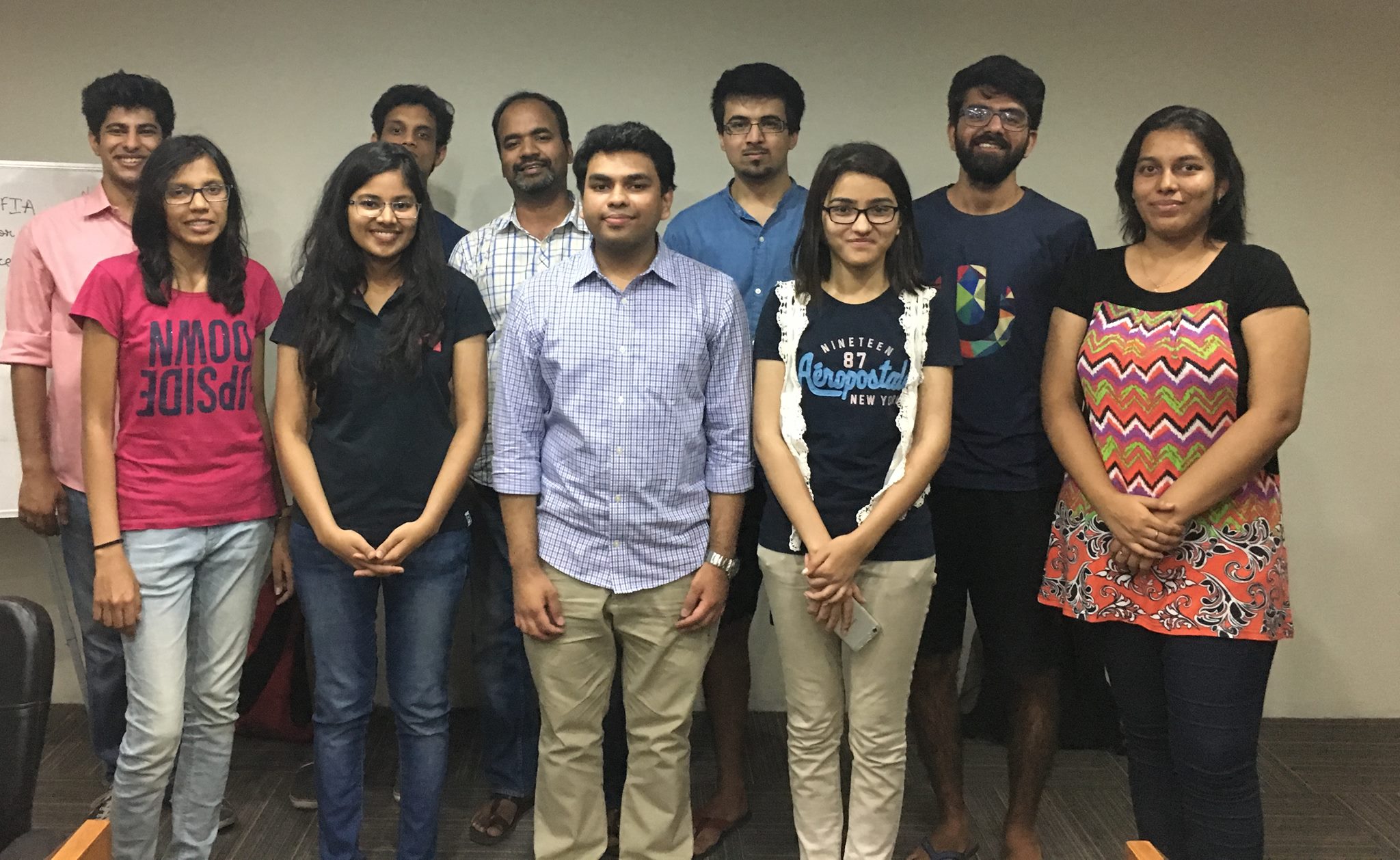Precog: From FOMO to a Learning Mindset
If there is one thing that would describe any student’s life in India, it would be FOMO (Fear of Missing Out). FOMO makes you do something you might not even want to do. The engineering decision you took, the various competitions you participate in, the effort you gave to get your dream intern. You do a lot of things just because your peers are doing it. And we find a hundred ways to justify our decisions rather than admitting the herd mentality.
Don’t get me wrong, and I’m no guru who’s here to enlighten you. I’m also guilty of being a trend-following guy for the better part of my college life. The worst thing is that FOMO would be ruling our lives almost forever if we don’t accept it. Even getting out of it is not an easy task. However, starting to develop a learning mindset is the first step. Thanks to Precog, I leapt and finally got out of the FOMO fallacy. PK often said, “The analysis is great, but how can we use this actually to create an impact.” or “How do we get actionable information out of this?” Such questions made me think because there was no trodden path. But eventually, everything started to make sense.
India has seen a tremendous shortage in covid vaccines, leading to people spending almost their whole day on the Cowin website, looking for slots. On May 4th, Paras(another fellow precogger) and I launched a Telegram bot that would check the Cowin website for any available slots and notify you instantly if any is available. At the time of writing this blog (June 6th), it has 100,000 users, with almost 3-4k new users joining in every single day. Every day we get messages from people thanking me that they got their vaccine jab, and we saved them a lot of time.


Furthermore, this initiative got covered in The Times of India, NDTV, News18, Mid-day Mumbai, Economic Times and many more publications. Following the shortage, we released a Youtube video on some tips and tricks to book a vaccine slot with 5k views in a day.

I never dreamt that I would be able to create something so big ever in my life. This might seem like a random project that caught traction, but it was the skills I learned during Precog, the network I made, and the countless hours I spent on the research project that helped me build things like these so quickly.
Another impactful project I’ve worked on is SevaShop, in which we empowered service-based SMBs to go online. With SevaShop, we won India’s biggest hackathon, InOut 7.0, along with prize money of ~1 Lakh and Build India Fellowship, a ~4 lakh grant for students who want to build great things.
But even this is not the best thing about my work. I didn’t make the bot because someone told me to. None of my peers was doing it. The sole reason for me to do this was to create an impact, and decisions like these come from a learning mindset. That constant urge to learn, having a curious mind, and turning them into a reality. That’s what composes a great learning experience.
So how did Precog imbibe such a mindset in me, you ask?
Setting a good foundation for the projects.
When I got into precog, I got a project with Kiran Garimella, a Post Doc @ MIT. It felt fantastic to work with someone who has done some quality work in the field of Social Computing. What I loved was his focus on the actual impact of numbers. We could do a lot of fancy work with the data that we had:
- sentiment analysis
- various clustering techniques with T-SNE, DBSCAN and whatnot
- code-mixing analysis
- topic modelling
And much more. It’s also tempting to apply the latest algorithms to our data and see what comes out of it. However, until we don’t focus on our problem statement, all hard work might go in vain. Setting good foundations for a project goes a long way. Even when I randomly talked about my project, this focus on the problem statement by everyone at Precog kept me on track.
A robust support system
A support system is underrated big time. We have many AMA sessions in Precog, where we interact with alums and get their perspectives on many things like Masters, Job, Research, and more. The alumni network of Precog is global. Some are doing Masters/Ph.D. in top-tier universities in the US, and others are at Facebook, Google, Apple, etc. Their experience itself teaches us a lot of things.
We also have WhatsUp sessions every week. In these 1.5 hour sessions, people share the highlights of the work they’ve done in the past week and get feedback. Such meetings enable information exchange. Now, this perhaps is the most crucial factor when you’re working here. Often, we are just stuck on something that someone else can help us out with quickly. This does not happen until you go and have a conversation about your work.
Often, the whole group is brainstorming on how to solve a problem you’re stuck at. This support system just boosts your morale and further motivates you to work.
Not a Research group, rather a Family.
We can’t just be working together and form a bond. We celebrate birthdays, have random chai discussions, and just take it light sometimes.

PK’s Birthday 2021 
Celebrating in our lab!
So that more or less sums up my experience. I have a long way to go and have a lot to achieve. However, the most important thing is just to enjoy the process.

Thanks for reading this blog, feel free to reach out or comment.

